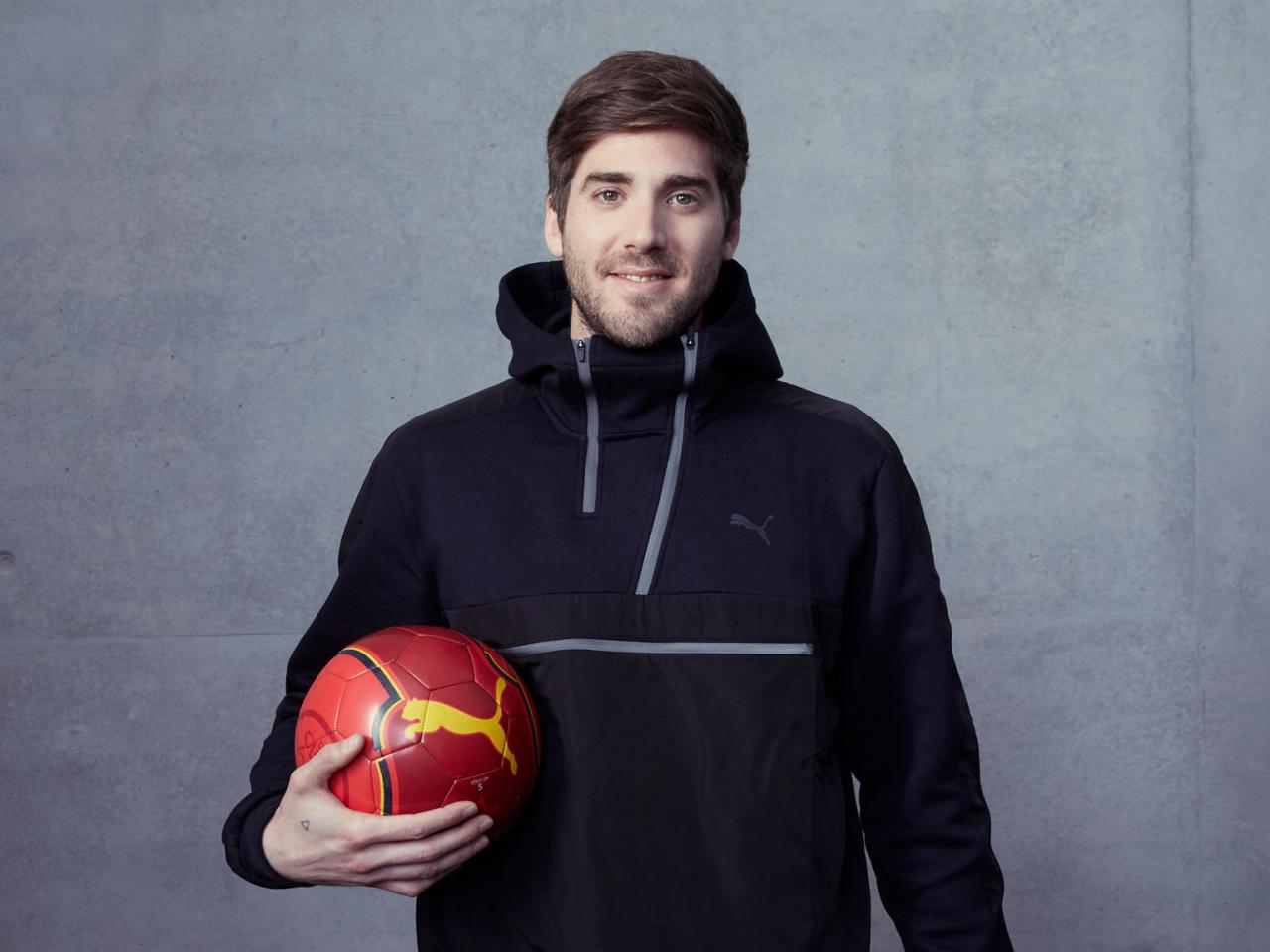
HOW TO BE EFFECTIVE AT WORK
Manuel Contador Senior Manager Global Media and Marketing Planning
Marketing in this region is varied and exciting because of the nature of the regions themselves and the culture differences between each one. Emerging and powerful, these markets can be volatile and are always changing. I am inspired everyday by the creative teamwork I observe here at PUMA. And so, I thought it might be helpful to open up a discussion about the common traits of highly effective team members.

COMMITMENT TO THE TEAM AND THE BRAND
This is the first thing I notice about great team members. In team sports, games are only won when people head towards the same goal - it’s the same in the office. Effective team members are motivated and committed. When each member of the team has his or her eye on the same prize it’s a much faster path to victory.
A great example here is Usain Bolt. Even though most of the time sprinting is a one-man job, he epitomizes determination and he is the most committed athlete I have ever met. His legendary status is based on his effort, his constant work and his commitment to the goal.
REAL CONVERSATIONALISTS
Effective team members can carry on real, useful conversations. This means that they are skilled at generating discussion, good atactive listeningand able to guide conversations when necessary. This is paramount because in a team situation, each individual is not always told what to do. Often team members must imagine the best use of their time or help others to do so.
Often a team must generate its own direction and then develop a plan to achieve the target. When each team member is actively listening and then contributing, meetings can move much more quickly. Items can more easily be agreed upon or solved, leaving the team more time to get down to the actual nitty-gritty of work.
FOCUS AND AGILITY
Sometimes it’s difficult to stay focusedon the main objective. With so many creative ideas, it’s easy for people to get distracted. Effective team members are able to listen to ideas, converse about the idea’s potential success, and then aid in the process of modifying or redirecting that idea to better hit the target and align to the brand’s ID. It is quite a skill to be able to keep the conversation focused.
Team members who can do this with finesse are highly prized. The team as a whole can usually be more agile than an individual-taking ideas into consideration, brainstorming them and ultimately reshaping them to create something better. This is so important in our particular region because things are changing all the time. The people who are able to reshape ideas based on new information are adaptable and agile. These are some of the most important skills, especially at PUMA.
GIVING AND TAKING FEEDBACK WITHOUT EGO
In order to give and take feedback effectively, we must often take ourselves out of the equation. An idea is on the table and the goal is to use the idea to create the best solution. That means that all the members of the team need to remember: feedback is not criticism. As human beings, our egos sometimes get in the way. Here is what I mean: Fear that our idea isn’t good, fear that it won’t be well-received or even fear that someone will have a better idea than we do, can prevent us from having open discussions. These types of fears can all be attributed to ego. Ego can be the single most destructive force on a team.
But fear not--Coming to team meetings with confidence is vital—confidence to submit ideas and confidence to give and take feedback. This is especially true in a subjective field like marketing. Justification is almost always needed to move an idea forward because marketing is so much about the imagination. You have to be able to take people with you, to paint a picture and tell a story. But you also have to remember that it isn’t about you. It’s about the ultimate goal. Each member of the team needs to work like a problem solver, helpingto tell a clearer, more compelling story.
An example here is an experience I had with a previous boss. He wanted to shift some colorways outside of the brand guidelines. Everyone on our team went along with the idea-- except me. I wasn’t defiant but I used reasonable justification and constructive feedback to discuss the reasons I didn’t think it was a good direction. My boss wasn’t threatened. He listened and because the justification had a solid basis, he changed his direction and stayed within the brand guidelines. This situation made the importance ofdiverse views and constructive feedback very clear. At PUMA this is one of our guiding leadership principles.
PERSPECTIVE
The biggest lesson I’ve learned from effective team members is that they keep things in perspective with a sense of timing and balance.I first heard the importance of perspective from Jack Ma, a leader I really respect and admire. He is a self-made man, who started from humble origins, and now as the Founder and CEO of Alibaba Group, he has become one of the most successful men in the world. What I admire about him is his perspective on life, business and mentoring others.
My favorite quote of his is: “Never give up. Today is hard, tomorrow will be worse, but the day after tomorrow will be sunshine.” It’s so important to remember that we are moving forward every day. Every effort we make brings us closer to our ultimate goals.